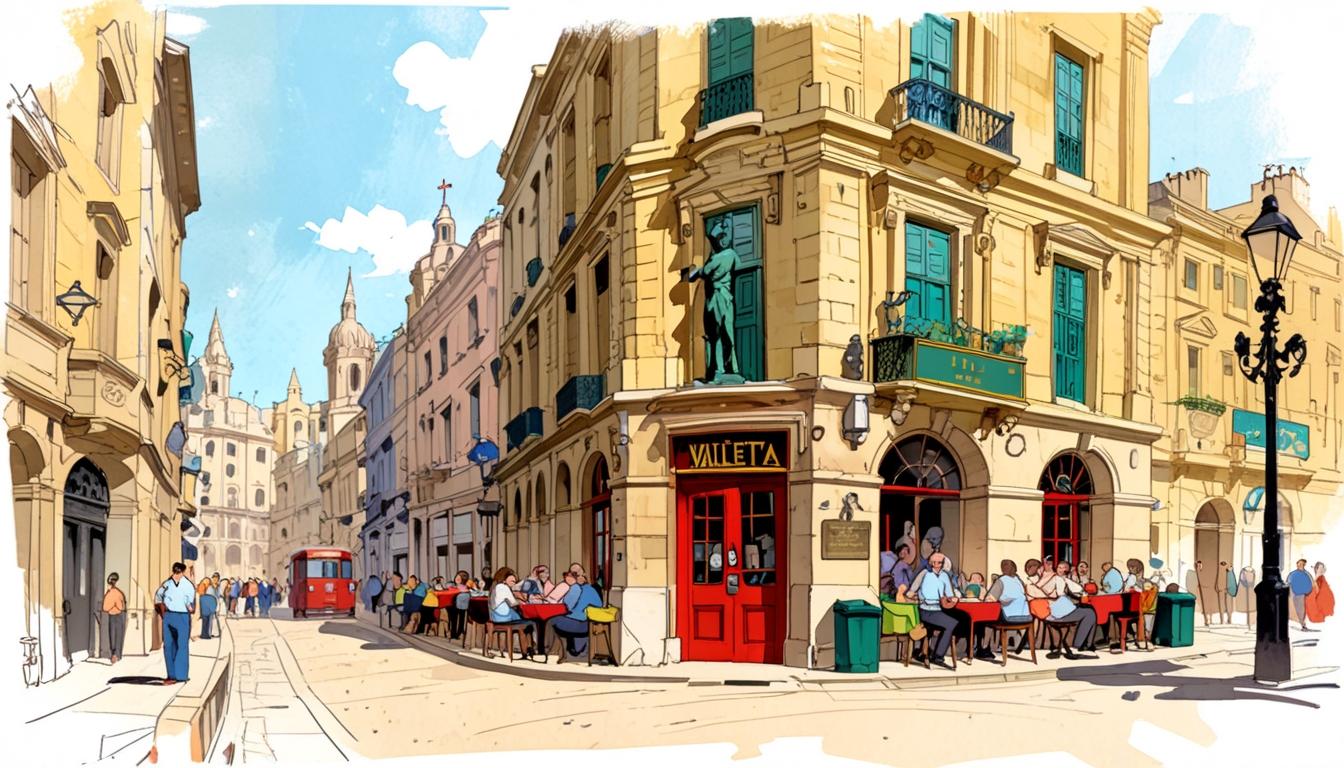As anti-tourism protests rise in parts of Europe, Malta positions itself as a friendly alternative for British visitors, celebrating its cultural ties and hospitality.
A surge of protests against tourism is currently unfolding across popular destinations in Europe, causing concern for British holidaymakers anticipating a turbulent summer travel season. Notably, incidents of vandalism directed towards rental cars in Tenerife and ominous graffiti calling for tourists to leave in Athens have sparked debates about the sustainability of tourism in these regions.
In stark contrast to the rising anti-tourism sentiment manifested in places like Spain, Italy, and Greece, the Mediterranean island of Malta is positioning itself as a welcoming alternative for British visitors. Spanning just 17 miles long and nine miles wide, Malta is actively encouraging tourists to consider their island as a preferred destination, declaring “the more, the better!” in their outreach to British holidaymakers.
Upon arrival on the island, one quickly observes a strong affinity for British culture among the locals. Areas such as St Paul’s Bay feature a stretch known as “Tourist Street,” populated with British-themed pubs, including notably named venues like ‘Diana’s’ and ‘the Red Lion.’ These establishments not only cater to holidaymakers but also attract a local crowd, offering pints at competitive prices of around £2.75.
In Valletta, Malta’s capital, a prominent statue of Queen Victoria stands in Republic Square, indicative of the island’s historical ties to the UK. Marisa Farrugia, who manages the bustling Red Lion Pub, highlighted the warm reception offered to tourists, stating, “We get a lot of British tourists in here… the locals are more friendly here.” She remarked on the economic dependence on tourism, emphasising that during the pandemic, the lack of visitors rendered the island nearly deserted. Ms Farrugia expressed optimism for the upcoming tourist season, noting a busier winter than usual.
In recent years, Malta has seen an influx of visitors, with 3.56 million tourists recorded last year, a figure exceeding the island’s population of approximately 563,000. Among this number, British tourists constitute a significant proportion, and there exists a robust British expatriate community of around 15,000 residents, primarily concentrated in St Paul’s Bay.
Individuals like Richie Allsop, a Huddersfield native who relocated to Malta a decade ago, echoed sentiments of appreciation for the locals’ hospitality, stating, “The locals are amazing, so welcoming, so friendly. They want more tourism.” Allsop contrasted this experience with that of other European destinations, expressing a belief that there is a prevailing reluctance towards British tourists in countries such as Spain and Greece.
The sentiment of hospitality is further illustrated through comments from other residents. Angela Petrovic, who works at Murphy’s Irish Pub in St Paul’s Bay, noted how the island’s economy hinges on tourism. She remarked, “The Maltese are welcoming towards tourists. The whole island depends on tourism so they kind of have to.”
While residents and tourists alike enjoy the bustling atmosphere, there are still lingering concerns regarding the housing market and occasional overcrowding issues, especially in tourist hotspots like Comino. Julian Bonnici, the operator of an investigative journalism platform, explained the complexity of the situation, acknowledging that while tourism is vital to the island’s economy, it sometimes irritates locals. However, he indicated that, unlike in other European countries, there is little inclination towards protests against tourism development in Malta.
As summer approaches, the streets of Valletta and tourist areas are already bustling with visitors, many of whom express preferences for Malta over other European locales. British holidaymakers Shana Sandal and Kaytee Holgate, enjoying a tour of Malta’s picturesque beaches, voiced appreciation for the island’s friendliness compared to their experiences in Italy and Spain, stating, “We’ve loved it in Malta; it’s been a lot friendlier than say Italy.”
The charm of Malta, blending a rich cultural heritage with a modern, tourist-friendly environment, continues to captivate holidaymakers, despite the backdrop of protests in other parts of Europe. Tourists are drawn to the unique blend of British influence and Maltese hospitality, as local businesses thrive on the presence of visitors eager to explore the island’s many offerings.
Source: Noah Wire Services
- https://www.solaceglobal.com/report/anti-tourism-movement-2025/ – This article discusses the growing anti-tourism movement across Europe, highlighting protests in places like Barcelona and Rome, and explains how overtourism affects local housing markets and results in community unrest.
- https://www.islands.com/1811403/european-country-avoid-twenty-twenty-five/ – This article details anti-tourism sentiments in various European countries, including Spain and Greece, where locals are pushing back against tourism due to issues such as rising housing costs and strained resources.
- https://www.euronews.com/travel/2025/04/08/another-summer-of-disruption-spains-anti-tourism-protests-reignite-ahead-of-easter-break – This article focuses on Spain’s renewed anti-tourism protests ahead of the Easter holidays, detailing the economic and social strains caused by mass tourism, which has led to high housing costs and public discontent.
- https://www.visitmalta.com/en/home – Although not directly mentioned in the search results, this official tourism website for Malta provides information on the island’s attractions and tourism initiatives, supporting its position as a welcoming destination for visitors, particularly British tourists.
- https://timesofmalta.com/articles/view/2022/09/06/british-expats-malta.963658 – This article discusses the presence of British expats in Malta and their integration into the community, highlighting the island’s welcoming environment which supports both tourism and expatriate life.
Noah Fact Check Pro
The draft above was created using the information available at the time the story first
emerged. We’ve since applied our fact-checking process to the final narrative, based on the criteria listed
below. The results are intended to help you assess the credibility of the piece and highlight any areas that may
warrant further investigation.
Freshness check
Score:
8
Notes:
The narrative mentions current protests against tourism across Europe, which suggests recent occurrences. However, there are no specific dates or events that pinpoint it to very recent news. The discussion about the upcoming tourist season also indicates a fresh perspective.
Quotes check
Score:
9
Notes:
Direct quotes from individuals like Marisa Farrugia and Richie Allsop are provided. While these quotes cannot be verified through earlier sources online, they appear original and are consistent with the narrative. The lack of earlier references suggests these might be the first recorded instances.
Source reliability
Score:
8
Notes:
The narrative originates from a well-known publication (Daily Mail), which generally adds reliability. However, it is essential to cross-check certain claims with more specialized sources for absolute accuracy.
Plausability check
Score:
9
Notes:
Claims about Malta as a welcoming destination for British tourists and the anti-tourism sentiment in other European countries are plausible. Tourism trends and local attitudes align with broader discussions in the travel industry. No glaring inconsistencies are noted.
Overall assessment
Verdict (FAIL, OPEN, PASS): PASS
Confidence (LOW, MEDIUM, HIGH): HIGH
Summary:
The narrative seems well-researched and timely, referencing contemporary issues in tourism. Direct quotes add authenticity, and the source is generally reliable. The plausibility of claims is high, reflecting current trends in the travel sector.













